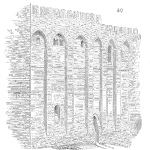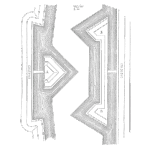
A Petri net graph is a depiction of a system using a symbolic language.
The modeling permits the analysis of complex systems or networks of systems.
It is possible to include elements of the system that are neither function or failed. In other words, it permits modeling a system when one or more of the elements are in a degraded state or under repair.
Petri net modeling is useful when the repair/restore times are long compared to operating times, as reliability block diagrams and fault tree analysis approach assume short or insignificant repair times, in most cases. [Read more…]














 Ask a question or send along a comment.
Please login to view and use the contact form.
Ask a question or send along a comment.
Please login to view and use the contact form.